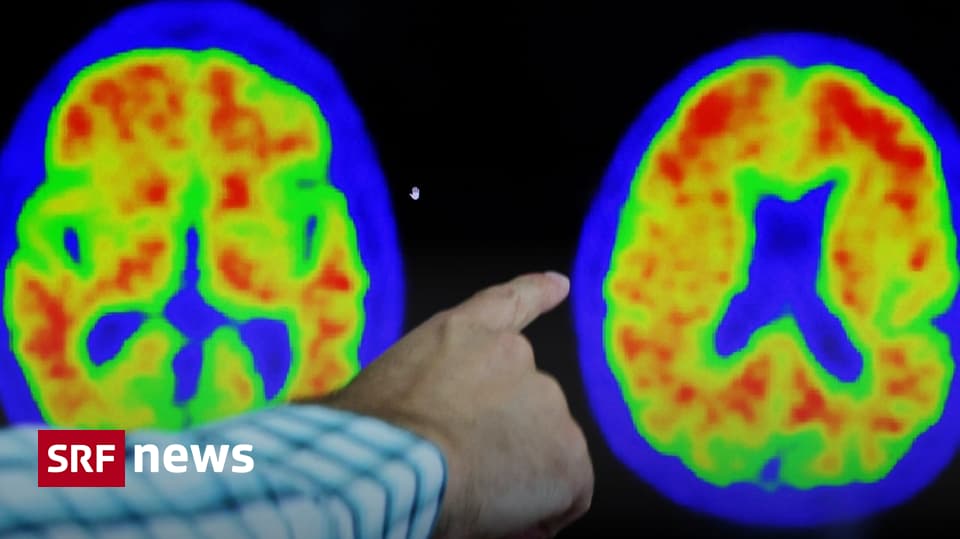New antibodies should slow down the spread of Alzheimer’s and delay the symptoms. Drugs have not yet been approved in Europe, serious side effects such as brain swelling and cerebral hemorrhage can occur. But there is hope that a breakthrough in Alzheimer’s research has been achieved. An expert classifies.
Christian Haas
molecular biologist
Open the people box Close the people box
The expert has been researching the causes of Alzheimer’s for more than three decades. Since 1999 he has been a professor at the medical faculty of the Ludwig-Maximilians-University in Munich. Haas is also spokesman for the German Center for Neurodegenerative Diseases.
SRF News: How exactly does the new method work?
Christian Haas: With Alzheimer’s, protein particles (“plaques”) are deposited between the nerve cells in the brain. The antibodies act against them. When they get into the brain, they recognize the “plaques” and sit on them. This triggers an immune response in the brain. The “plaques” are literally eaten up by the immune cells. This is so efficient that these antibodies can be used to remove a large proportion – up to 80 percent – of the “plaques” that are already present.
New drug “Donanemab”
Open box Close box
The new Alzheimer’s drug from the US pharmaceutical company Eli Lilly seems to work better than expected in the early stages of the disease. In these patients, the drug donanemab slowed the progression of the brain-damaging disease by 60 percent, according to study data released Monday. (Reuters)
In the past there was always hope that was not fulfilled. What’s different this time?
In fact, other approaches have so far failed. There have also been setbacks with antibodies in the past. But that also had to do with the fact that they were administered at the wrong time or in the wrong concentration. Today, however, patients can be diagnosed very early and the antibodies can be administered to them. The current approach has now worked in two independent studies.
The latest study ran for 18 months – isn’t that very short?
That’s so. But it couldn’t go any longer because such a study is associated with insane costs. There is also pressure from the population for medicines to finally come onto the market. The 18 months are within the normal range for clinical studies. Nevertheless, the effect that can be measured remains relatively small. The disease drags on for years – not that much happens in the brain in a year and a half. So these drugs must now be approved and then reviewed over a longer period of time.
There is immense pressure from the population for drugs to finally come onto the market.
Is there finally reason for hope in Alzheimer’s research?
I would say so. You can at least slow down the course of the disease with these antibody therapies. It’s not the definitive breakthrough yet, but it’s definitely on the right track.
In this case, it cannot be cured yet?
That’s the thing with healing. Once the brain has been damaged, it is actually irreparable. A patient can never be restored to the state in which he or she was. What can be achieved is stabilization in the state in which someone has come to the hospital. That would be a huge success. But you’re not there yet.
It’s not the definitive breakthrough yet, but it’s definitely on the right track.
How do you assess the possible serious side effects of antibody therapy?
As a layman, the reports about the side effects are indeed very dramatic. There are undoubtedly serious individual cases. But what I hear from the doctors is that in most cases it is a matter of mini-bleeds that the patient does not even notice and that usually heal on their own. Of course, this bleeding must now be checked thoroughly. If the drugs are actually released, they will be in use for decades.
Caption: X-ray of a brain in a US hospital (March 2023) REUTERS/Brian Snyder/File Photo
Iwan Lieberherr conducted the interview.
